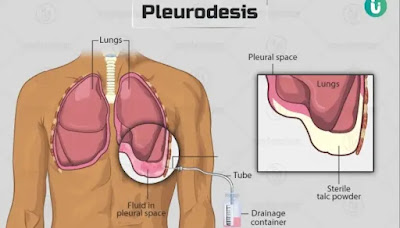What Is Human Metapneumovirus (HMPV)? Check Diagnosis, Treatment & Symptoms of HMPV
The human metapneumovirus (HMPV) typically induces symptoms resembling those of a common cold, such as coughing, wheezing, a runny nose, or a sore throat.
While most cases present mild symptoms, individuals at greater risk for severe illness include young children, adults aged over 65, and those with compromised immune systems. HMPV is widespread, with the majority of individuals experiencing it before reaching the age of 5.
Overview
What is human metapneumovirus (HMPV)?
The human
metapneumovirus (HMPV) commonly results in symptoms akin to those of the common
cold, primarily manifesting as upper respiratory infections. However, it can
occasionally lead to lower respiratory infections, such as pneumonia,
exacerbation of asthma, or aggravation of chronic obstructive pulmonary disease(COPD). HMPV infections are prevalent during the winter and early spring
seasons.
Typically, individuals
contract HMPV before the age of 5. Subsequent infections are possible, yet
symptoms tend to be mild following the initial bout of infection.
Is human metapneumovirus just a cold?
While human
metapneumovirus typically induces cold-like symptoms, certain individuals may experience
severe illness.
The initial encounter
with HMPV often results in a higher likelihood of severe sickness, particularly
for young children.
After the first
infection, individuals gain some immunity, reducing the severity of subsequent
HMPV infections to milder, cold-like symptoms. Adults aged over 65 and
individuals with respiratory issues or weakened immune systems may also face
the risk of severe symptoms.
Naval Veterans Found to Have High Lung Cancer Cases
How common is human metapneumovirus?
Studies suggest that
roughly 10% to 12% of respiratory illnesses affecting children stem from HMPV.
While the majority of cases are mild, approximately 5% to 16% of children may
progress to develop lower respiratory tract infections such as pneumonia.
Is human metapneumovirus the same as RSV?
Human metapneumovirus
differs, yet it shares similarities with respiratory syncytial virus (RSV).
Both belong to the same genus, Pneumovirus, and can evoke comparable symptoms.
The critical period for
severe HMPV-related illness typically falls between 6 and 12 months of age. In
contrast, RSV tends to prompt more severe illness in infants younger than 6
months.
Symptoms and Causes
What are the symptoms of human metapneumovirus?
Common symptoms
associated with human metapneumovirus comprise:
- Coughing
- Fever
- Nasal congestion or discharge
- Sore throat
- Wheezing
- Difficulty breathing (dyspnea)
- Rash
What causes a human metapneumovirus infection?
HMPV is caused by a
virus, a tiny organism that utilizes your cells to replicate. It belongs to the
same family of viruses responsible for RSV, measles, and mumps.
How is human metapneumovirus transmitted?
HMPV spreads through
direct contact with an infected individual or by touching surfaces contaminated
with the virus. For instance:
- Respiratory droplets from coughing and sneezing.
- Physical contact such as handshakes, hugs, or kisses.
- Contact with surfaces or objects like phones, doorknobs, keyboards, or toys that carry the virus.
What are the risk factors for human metapneumovirus?
Anyone can get HMPV, but
you’re at a higher risk for severe illness if you:
Are younger than 5
(especially premature infants) or older than 65.
Have a weakened immune
system (from conditions like HIV, cancer or autoimmune disorders, or from
medications that suppress your immune system).
Have asthma or COPD.
What are the complications of human metapneumovirus?
Occasionally, HMPV can
lead to complications that may necessitate hospitalization. These include:
- Bronchiolitis
- Bronchitis
- Pneumonia
- Exacerbation of asthma or COPD
- Ear infection (otitis media)
- Diagnosis and Tests
How is human metapneumovirus diagnosed?
Healthcare professionals
typically diagnose HMPV based on your symptoms and medical background. They
might employ a soft-tipped stick (swab) to obtain a sample from your nose or
throat for laboratory testing, aiming to detect viruses and potential
infections. It's important to note that testing for HMPV may not be conducted
unless severe symptoms are present.
In certain cases, your
healthcare provider might conduct further examinations such as bronchoscopy or
chest X-rays to investigate potential alterations in your lung airways.
Management and Treatment
How is human metapneumovirus treated?
No specific antiviral
medications target human metapneumovirus. For most individuals, symptom
management at home suffices until recovery.
However, in cases of
severe illness, hospital admission may be necessary. Healthcare professionals
in a hospital setting can monitor your condition closely and implement measures
to prevent further deterioration. Treatment options in a hospital may include:
Oxygen therapy: If
breathing becomes challenging, supplemental oxygen through a nasal tube or a
face mask may be administered.
Intravenous (IV) fluids:
Direct delivery of fluids into a vein can help maintain hydration levels.
Corticosteroids: These
medications reduce inflammation and may alleviate certain symptoms.
Is there a need of antibiotics for human metapneumovirus?
Antibiotics exclusively
target bacterial infections and are ineffective against viruses like HMPV.
While HMPV itself cannot
be eliminated by antibiotics as it's a virus, those experiencing pneumonia due
to HMPV might also develop a bacterial infection concurrently (known as a
secondary infection).
If prescribed
antibiotics, it would typically be to address and treat any secondary bacterial
infections.
Prevention
Can you prevent a human metapneumovirus infection?
To minimize the risk of
contracting HMPV and other contagious illnesses:
Regularly wash your
hands with soap and water. If unavailable, opt for an alcohol-based hand
sanitizer.
When sneezing or
coughing, use your elbow to cover your nose and mouth instead of your bare
hand.
Steer clear of close
contact with individuals who are unwell with a cold or any contagious
condition.
If you're ill and must
be around others, consider wearing a mask to prevent transmission.
Refrain from touching
your face, including the eyes, nose, and mouth.
Avoid sharing food or
utensils such as forks, spoons, or cups with others to minimize potential
transmission.
How Asbestos Insulation Became Top Reason for the Risk
Outlook / Prognosis
How long does human metapneumovirus last?
Typically, mild
instances of human metapneumovirus resolve within a few days to a week.
However, severe cases may require a longer recovery period. Lingering symptoms,
such as a persistent cough, might endure for an extended period before
completely subsiding.
When should I see my healthcare provider?
If you or your child
experience the following, it's advisable to contact a healthcare provider:
Symptoms of a
respiratory infection coupled with an underlying condition that increases the
risk of severe illness.
Lack of improvement in
symptoms within a few days or the presence of a fever persisting beyond three
days.
When should I go to the ER?
If you or your child
exhibit symptoms of severe illness, it's crucial to seek immediate medical
attention or visit the emergency room if you notice:
- High fever surpassing 103 degrees Fahrenheit (40 degrees Celsius).
- Difficulty breathing.
- Bluish discoloration of the skin, lips, or nails (cyanosis).
- Deterioration in pre-existing health conditions.
What questions should I ask my doctor?
It could be beneficial to inquire with your healthcare provider about::
- Suitable over-the-counter medications for symptom management.
- Effective home treatments for alleviating symptoms.
- Indicators of severe symptoms warranting immediate attention at the ER.
- Guidelines on when to seek emergency care.
- Plans for follow-up appointments.
- Expected duration for symptom improvement or recovery
More about Human metapneumovirus (HMPV):
Please note that Human
metapneumovirus (HMPV) is a prevalent virus that typically induces symptoms
resembling those of a common cold. If you're older than 5, chances are you've
encountered it at least once. In most cases, recovery occurs at home within a few
days.
HMPV can occasionally
lead to severe complications. Young children, adults over 65, and individuals
with weakened immune systems face a higher risk of severe illness.
Should you have any
concerns regarding HMPV, consulting your healthcare provider is advisable.
Immediate medical attention is essential if you or your child experience
difficulty breathing or exhibit other signs of severe illness.
4 Uknown Facts About Essiac Tea and Cancer
References
- American Academy of Pediatrics. Human metapneumovirus. Red Book 2018 Report of the Committee on Infectious Diseases [online edition].
- CDC. Notes from the Field: Severe Human Metapneumovirus Infections — North Dakota, 2016. MMWR. 2017;66(28):486-8.
- CDC. Outbreaks of human metapneumovirus in two skilled nursing facilities — West Virginia and Idaho, 2011–2012. MMWR. 2013;62(46):909-13.
- Heikkinen T, Österback R, Peltola V, Jartti T, Vainionpää R. Human metapneumovirus infections in children. Emerg Infect Dis [serial the Internet]. 2008 Jan.
- Pelletier G, Dery P. Abed Y et al. Respiratory tract reinfections by the new human Metapneumovirus in an immunocompromised child. Emerg Infect Dis [serial on the Internet]. 2002 Sep.
- Peña SA, Davis SS, Lu X, Sakthivel SKK, Peret TCT, et al. Severe Respiratory Illness Associated with Human Metapneumovirus in Nursing Home, New Mexico, USA. Emerg Infect Dis. 2019 Feb;25(2):383-384.[AJL(1]
- Stockton J, Stephenson I, Fleming D, Zambon M. Human Metapneumovirus as a cause of community-acquired respiratory illness. Emerg Infect Dis [serial the Internet] 2002 Sep.
- Va den Hoogen BG, de Jong JC, Goen J, Kuiken T, de Groot R, et al. A newly discovered human pneumovirus isolated from young children with respiratory tract disease. Nat Med. 2001;7(6):719-24.
- Widmer K, Zhu Y, Williams JV et al. Rates of hospitalizations for respiratory syncytial virus, human metapneumovirus and influenza virus in older adults. J Infect Dis. 2012;206(1):56-




Comments
Post a Comment